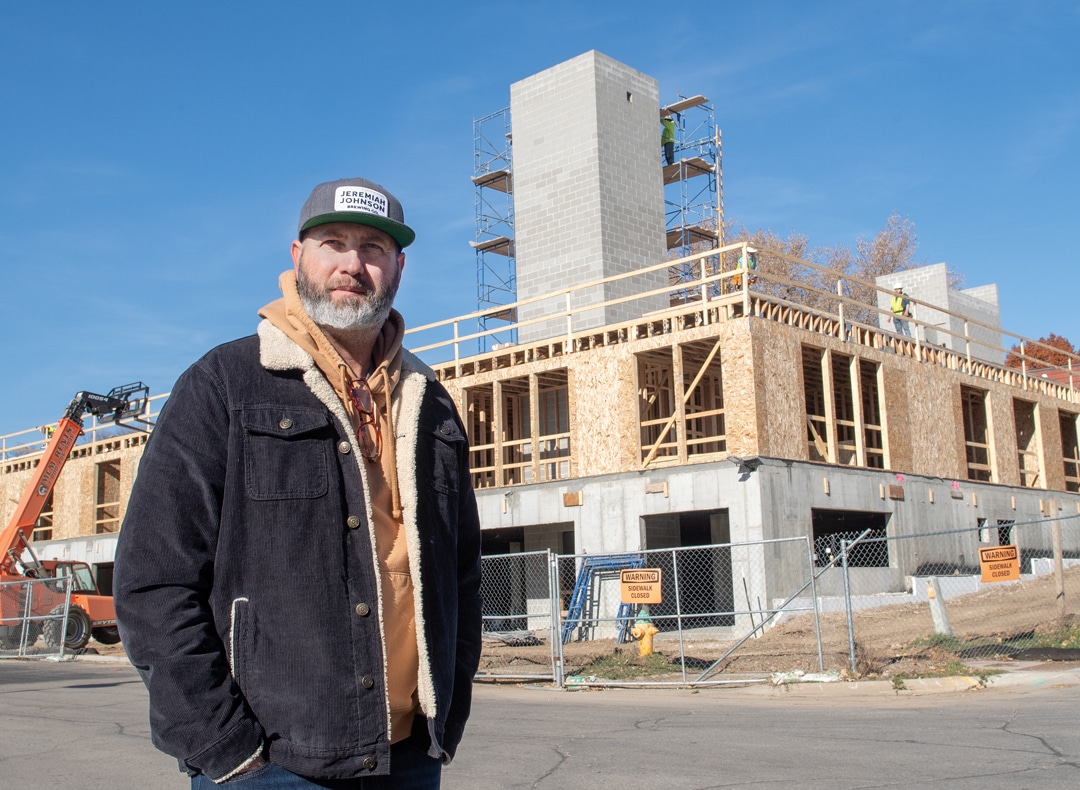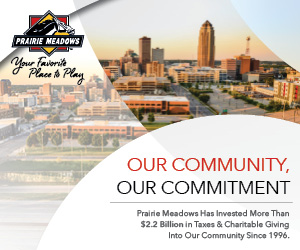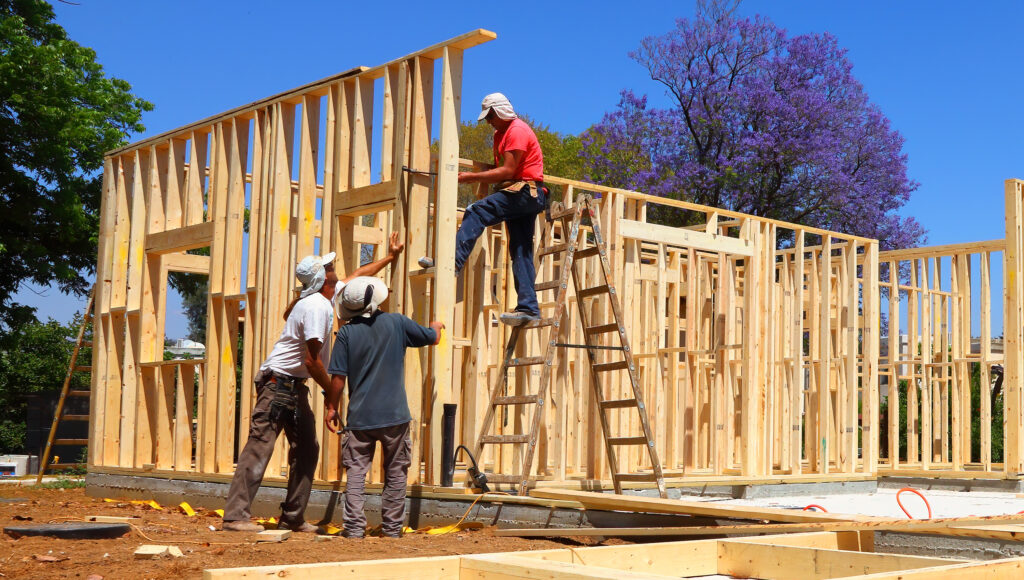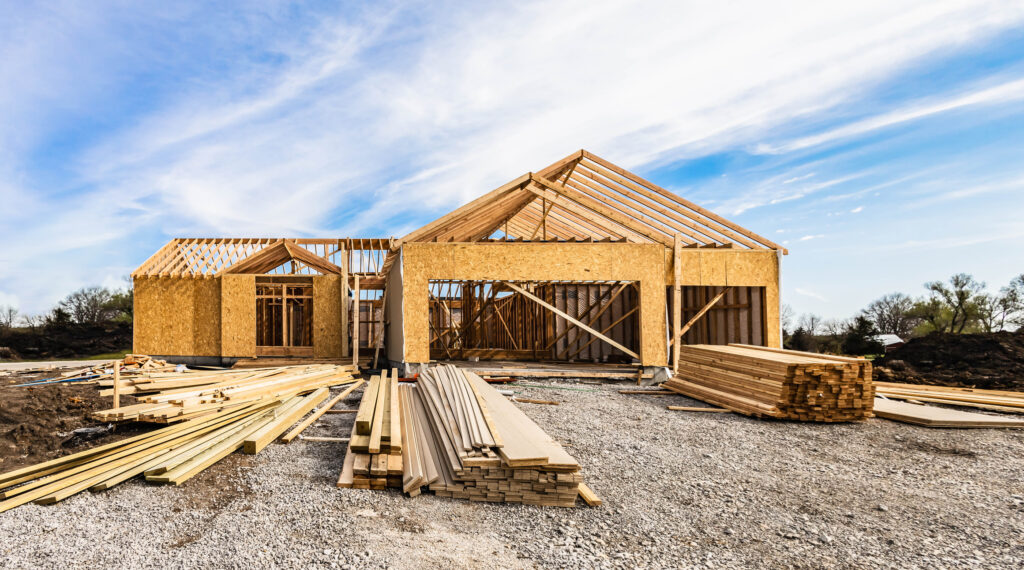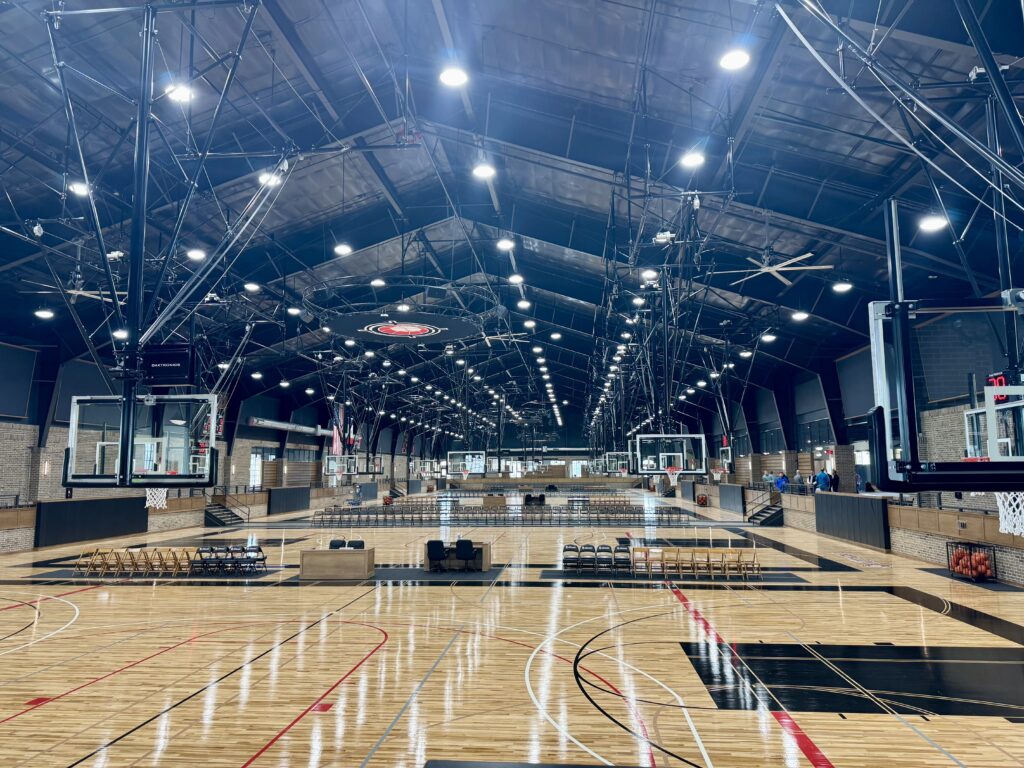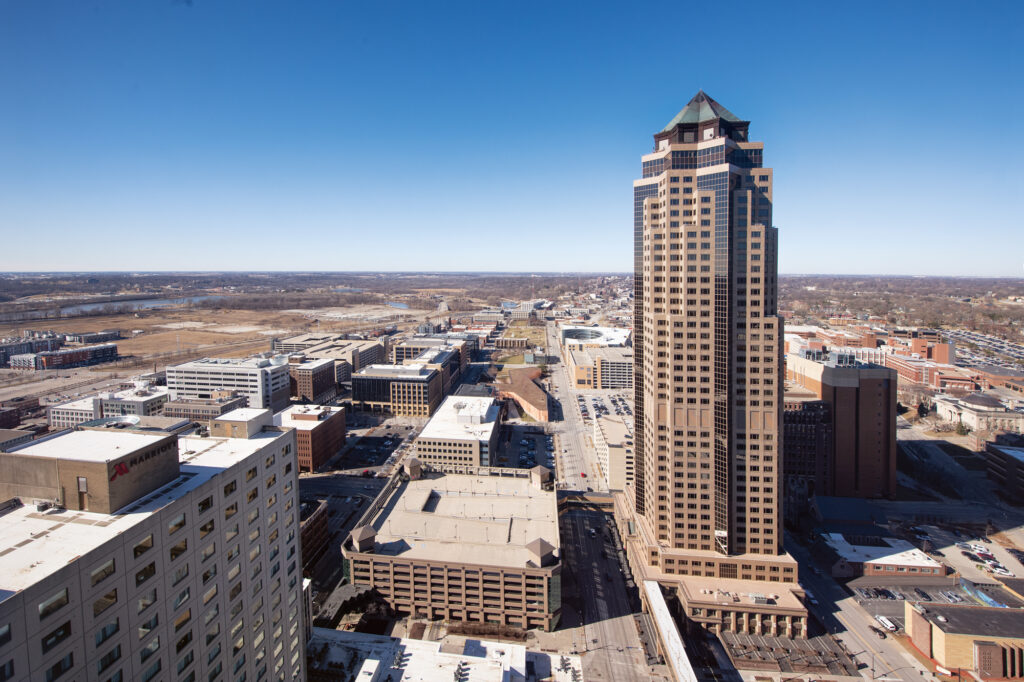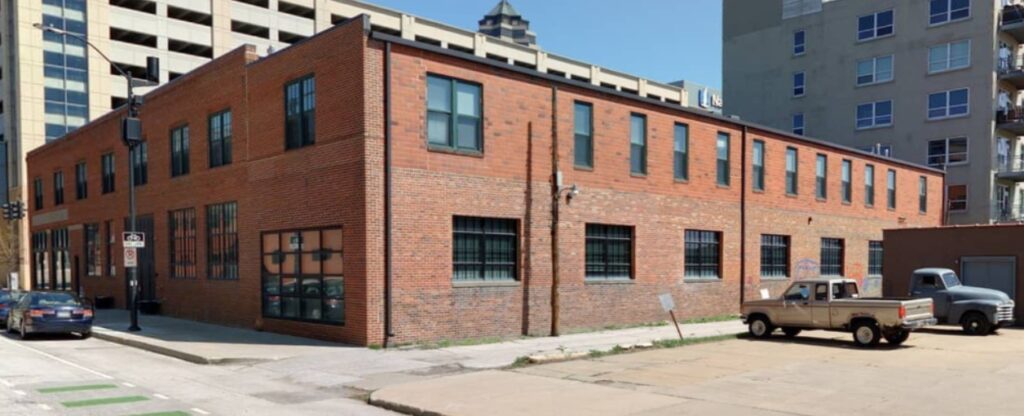Downtown Des Moines poised to add 1,778 apartments

Kathy A. Bolten Dec 1, 2023 | 6:00 am
7 min read time
1,700 wordsBusiness Record Insider, Housing, Real Estate and DevelopmentMultifamily developer Ryan Wade had an opportunity to buy property on the edge of Des Moines’ downtown district just prior to the start of the pandemic.
He backed away from the deal when the economy nosedived.
Now Wade, an Iowa City-based developer, is preparing for the second phase of his High Street Lofts project at 16th and High streets, north of Big Grove Brewery & Taproom. Construction is underway on the development’s 47-unit first phase; work on the 44-unit second phase is expected to begin in the summer.
“It’s an up-and-coming area,” Wade said of the area between the Sherman Hill neighborhood and downtown’s Western Gateway Park. “It’s on the edge of the downtown market. There hasn’t been much built downtown in the past couple years and the vacancy rates have been low.”
The High Street Lofts’ second phase is among 11 apartment projects that have either been proposed or are under construction in Des Moines’ central business district.
If all of the projects are developed, 1,778 units would be added to downtown in the next one to three years, increasing the area’s multifamily residences by 27%. Currently, 6,507 apartment units are in the central business district and East Village, data compiled by CBRE Group, Inc. shows.
Multifamily development activity is not limited to downtown. It is occurring throughout much of the Greater Des Moines area. Just over 2,830 apartment units are under construction in the metro with nearly 1,100 of the units being built in Waukee, recent CBRE data show.
The flurry of activity comes after a slowdown primarily caused by the pandemic’s effects on the nation’s economy.
Between 2016 and 2019, an average of 2,300 new apartment units per year were delivered to the market, said Zach Scheckel, a CBRE broker who specializes in multifamily. A total of 3,000 new units have been delivered since 2020, he said.
“Neither of those levels are what we call stabilized – they were either very high or very low,” Scheckel said. In 2024, construction of an estimated 1,500 apartment units is expected to be completed. “I think we’ll see a lot more stable levels of new supply over the next two to three years.”
Office space conversions continue
A large amount of the metro area’s new multifamily units is expected to be developed in Des Moines’ central business district.
The increased activity follows a decline in downtown multifamily development activity. In 2022, downtown recorded no new deliveries of apartment units, the first time that had occurred since 2012, according to a CBRE report. This year, two projects with a total of 246 units have been completed: Hubbell Realty Co.’s five-story Level multifamily project at 220 Maple St., and Sherman Associates’ four-story Slate at Gray’s Landing at 400 S.W. 11th St. Slate is aimed at active, older adults.
Among the multifamily projects expected to begin in 2024 is the conversion of office space into 200 apartment units at Two Ruan Center, 601 Locust St. Cody Christensen, Des Moines’ director of development services, said he expects more downtown office space converted to residences.
“With the number of vacant office buildings we have downtown, we are going to see more of those buildings be turned into apartments,” Christensen said. “We still have a demand for apartments downtown.”
Central business districts tend to attract young professionals who want to live near their workplace and by people with similar backgrounds, Wade said. “They want to be in the hub of weekly activities that occur downtown and near the restaurants and bars. They want to be around like-minded people and opportunities to network.
“Downtowns are a great environment for that.”
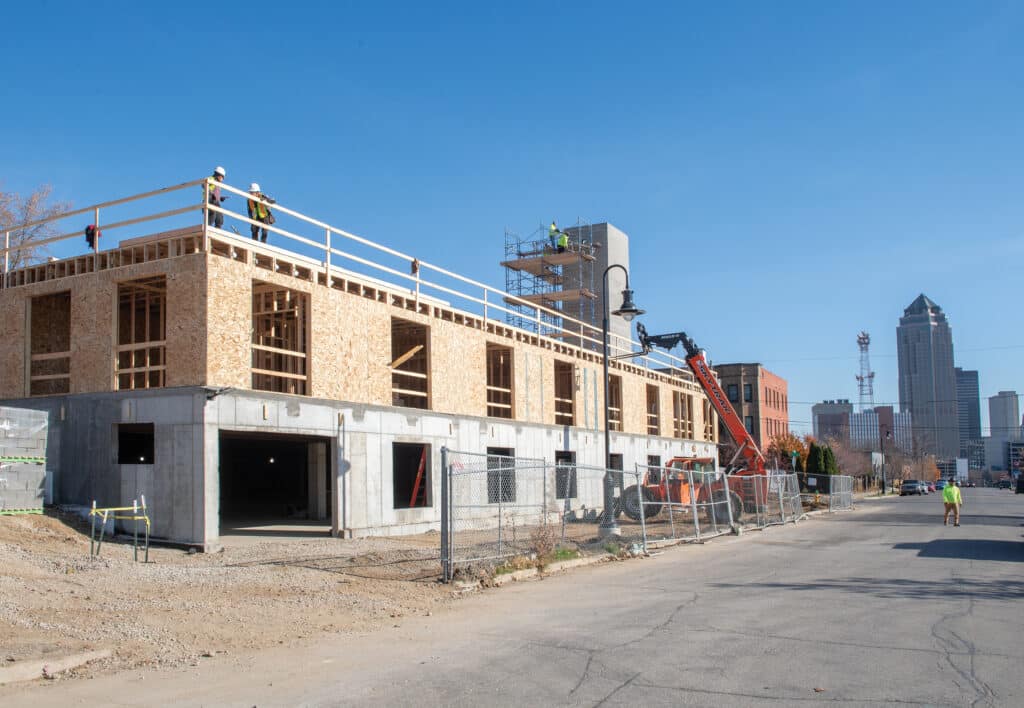
Between 2010 and 2020, the number of people living downtown grew over 80% to 8,371 from 4,497, U.S. Census data shows. In the preceding decade, just 397 people were added to downtown’s population.
Part of that growth has been fueled by the increase in multifamily units downtown. Since 2004, at least 23 downtown Des Moines properties have been converted to multifamily housing, adding 1,600 apartments to the area, a Business Record review found. Many of the new units have been added since 2015. Even with the addition of units, downtown’s multifamily vacancy rate is 4.9%, according to a recent CBRE market report.
The absorption of new units has impressed Andrew Juiris, president of Chicago-based Double Eagle Development.
“That was a really good proving point on whether the city could handle a lot of supply at once,” said Juiris, whose company has proposed a 202-unit, seven-level apartment project valued at $62 million at 1435 Mulberry St.
Double Eagle Development’s parent company – St. Louis, Mo.-based Balke Brown Transwestern – acquired Flux Apartments and Onyx Office Suites at 1400 Walnut St. in January 2022. The seven-level, 202-unit apartment project called Falcon is just south of Flux Apartments.
Des Moines’ central business district is poised for additional growth, Juiris said.
“We love the economic drivers of Des Moines,” Juiris said. “When we look at Midwest markets, we are going to focus on the ones with the best growth history and projections. Des Moines falls into that category.”
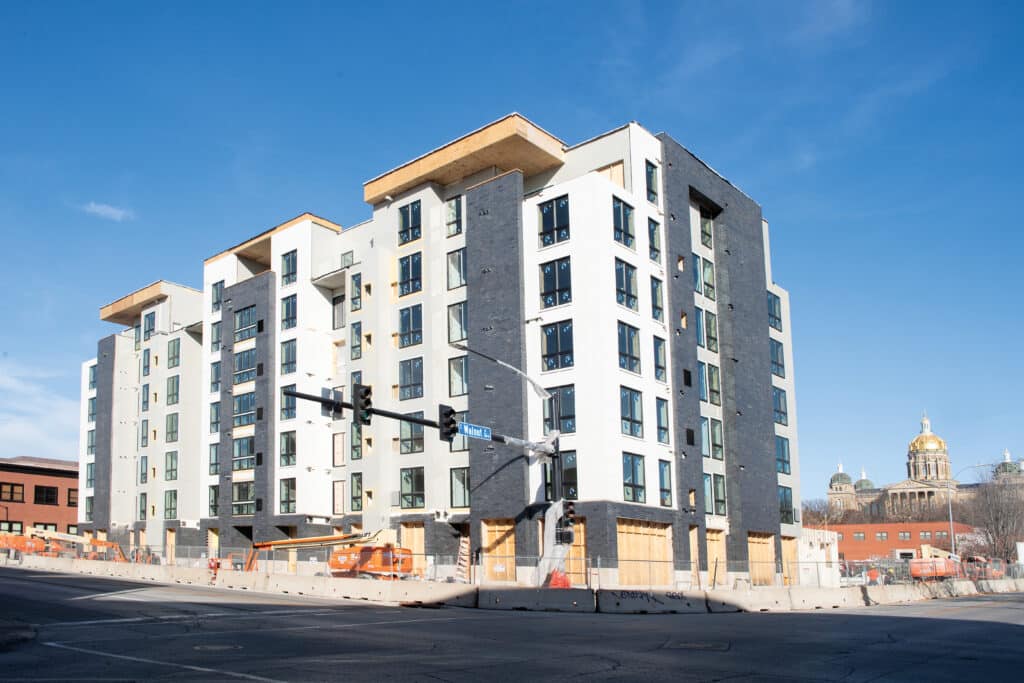
Higher costs mean higher rent
Over the past year, interest rates for commercial loans have more than doubled from the mid-3% range to the 7% range and higher. Many lenders are now requiring more equity from borrowers, reducing potential returns on investments.
Putting together a financial package for the second phase of High Street Lofts has been more difficult than the first phase, Wade said. “You have to be more creative and you have to put more money into the project.”
The project received a boost in August when the Iowa Economic Development Authority announced that it would receive $982,027 in workforce housing tax credits and sales tax refund. Wade said if the project hadn’t received the tax credits, he likely would have waited until interest rates were lower to start the project.
The city of Des Moines also helped fill the financial gap by extending assistance through tax increment financing for three years. The project is proposed to receive up to $2.2 million in financial assistance over 20 years. The project’s first phase received financial assistance of up to $940,000 over 18 years.
The costs of developing a multifamily project are about 40% higher than they were prior to the pandemic, Matt Weller, director of development at Hubbell Realty Co. in West Des Moines, estimated. Many projects are taking longer to complete because builders are waiting on supplies as well as the availability of subcontractors.
“Higher rental rates need to be charged to pay for those higher costs,” Weller said. “That’s part of why we’re seeing increased average rental rates across the market over the past couple years.”
In the first half of 2023, the average monthly rental rate was $1,109, according to a CBRE report. A year ago, rental rates averaged $1,006 a month.
Low vacancies have also contributed to an increase in rental rates, Weller said. A year ago, the metro area’s average vacancy rate was 5.86%; it’s now at 4.82%, according to CBRE.
“Downtown, one-bedroom units have been flying off the shelf,” Weller said. “For young professionals, costs aren’t as much of an obstacle. They want the newest and best thing.”
Level, Hubbell’s project south of Interstate Highway 235 and east of the Des Moines River, opened in August and over 60% of its 114 units are leased, Weller said.
“The velocity there is something we haven’t seen in years,” he said. “No new products were delivered downtown last year, so right now, we’re the only game in town.”
One-third of new apartment construction occurring in Waukee
By Kathy A. Bolten
In the Greater Des Moines area, 2,831 apartment units are either under construction or have been recently completed, according to a recent CBRE Group, Inc. multifamily market report.
Over a third of the units – 1,096 – are being built in Waukee, which in 2020 was named Iowa’s fastest-growing city. In 2015, the Dallas County community’s estimated population was 17,706, according to U.S. Census data. The community’s population is now estimated at 24,089, a 36% increase since 2015.
That growth has fueled residential construction, including apartments and rental townhomes.
The pace of multifamily development will likely slow to allow for the absorption of new units, said Brad Deets, Waukee’s city administrator.
“Multifamily development is very cyclical,” Deets said. “We may get a slew of approvals in a short period of time but then it will tail off for a while to allow for the construction and lease up of the new units.”
Much of Waukee’s multifamily construction is occurring in the northwest part of the city and along Grand Prairie Parkway near Vibrant Music Hall, an event center that recently opened.
“Waukee has done a really good job of investing in things that make the community attractive for families: bike trails, parks and schools,” said Matt Weller, Hubbell Realty Co.’s director of development. “Those are all things we look at when we look at developing a multifamily – what are the amenities that are in close proximity to a project and how can we capitalize on them.
“Waukee is very favorable in that regard.”
One of the projects that Hubbell has underway in Waukee is Converge NW, south of Waukee’s Northwest High School and Triumph Park. The project’s $41 million first phase includes the construction of 180 apartment units spread over two buildings and 33 townhomes.
Construction of the apartment buildings is expected to be completed during the first half of 2024, Weller said.
“There’s a lot of units coming online in Waukee in 2024,” Weller said. “I think all of the different developers have a different niche in the market but there’s going to be a lot of units and a lot of competition to attract those renters.”

Kathy A. Bolten
Kathy A. Bolten is a senior staff writer at Business Record. She covers real estate and development, workforce development, education, banking and finance, and housing.

